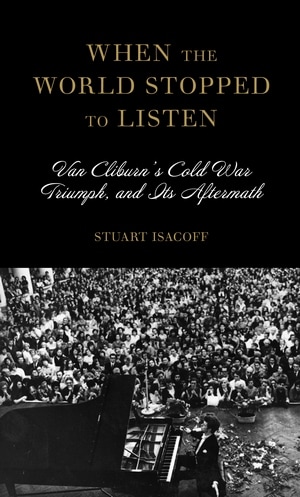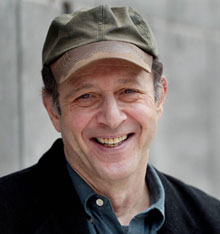
In his new book, When the World Stopped to Listen: Van Cliburn’s Cold War Trumph and Its Aftermath, Stuart Isacoff brings both a pianist’s insights and a historian’s rigor to an event that shook the musical world – indeed, the world at large – almost six decades ago. It was in 1958, at the height of the Cold War, that a lanky young Texan went to Moscow and won the gold medal for piano at the first Tchaikovsky Competition.
Although Isacoff didn’t know Cliburn personally (at least, he makes no such claim), his presentation of the pianist is detailed and vivid. The portrait drawn here is not always flattering: for instance, Isacoff notes the overbearing influence of the pianist’s mother and first teacher, Rildia Bee O’Bryan Cliburn, his superstitious fascination with astrology, and his ill-placed faith in an amphetamine-dispensing quack, Max “Dr. Feelgood” Jacobson. Cliburn also is described as naïve, irresponsible, and plagued with performance anxieties. (Isacoff does not say much about Cliburn’s homosexuality, except to point out that the 1950s were not a time of tolerance.)

 RSS Feed
RSS Feed

